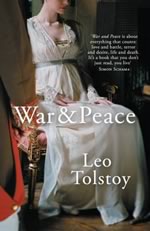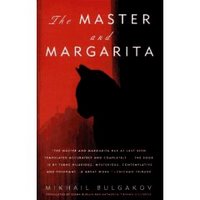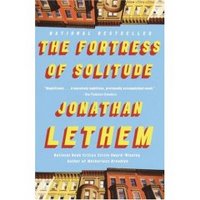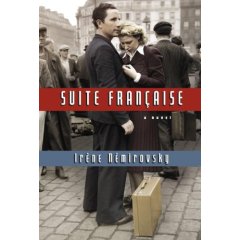 War and Peace
War and Peace is a grand undertaking of humanity that is both epic and intimate. The novel mostly revolves around two families--the Rostovs and the Bolkonskys and an eclectic Pierre Bezuhov. Napoleon's invasion of Russia forms the backdrop of the novel. These characters, who are left at the mercy of their fate and the capricious climate of war, ineluctably move in the strange delirium of war and its chaos, which constitutes a foil for their personal drama. An inscrutable fear takes hold of everyone indiscriminately: it is not so much a fear for the life as people can await their fate calmly and cope with it with solemnity and circumspection when the time comes. It's the fear of not being able to summon the courage to withstand spectacle of war's unfortunate circumstances. But there are exceptions. At the center of war are two men who with an unremitting passion strive to make inquiry to the depth of humanity.
The cynical Andrei Bolkonsky thrives to find meaning of life and happiness at the expense of suffering in war. What intrigues him is the moment of glory that transcends one's lifetime. The ennobling of his soul preponderates everything in life that death, wound, and even the loss of family do not hold any terrors for him. But after he tastes the thrill of fighting in a battle, he does not attain his long-coveted happiness which he thinks his marriage has divested. Honor and glory in the end almost spoil his whole life. After the death of his wife to whom he has eschewed duty as a husband, he laments over human dignity, peace of mind, and most painfully, his ingratitude. He is always occupied with the single thought of atoning for his wrong. It is not until the incessant mourning and the deprivation of love does it dawn on him that he is capable of emotion and love. The ultimate verdict, is his realization that one must believe in the possibility of happiness in order to be happy.
Pierre Bezuhov is also searching for the meaning of life. Despite the huge fortune he has inherited, he is not satisfied one bit with his life and in fact he hates it. He listens to the conversations at high society parties of which his wife is the hostess with perplexity, alarm, and disgust. He scorns at the commonplace and superficial things being said and even more the people who would go into ruptures over the fluffs and conceive some profound meaning to them. Bezuhov unconsciously keeps a distance from the social circle--despite the fact that he is learned and cultured, his acquaintances often receive him not only cordially but also with a shade of deference and awe that is a tribute to his eccentricity. The search of life's meaning takes him to the midst of battlefield. Completely oblivious to the flying canon balls and arrows, he is absorbed in the contemplation of the fire that blazes more fiercely with every moment. It's during the time of his being taken captive that he attains to the peace and content for which before he has striven in vain. It's through the witnessing the horrible spectacle of war and death that he gains the tranquility. He realizes that a superfluity of life's comforts destroys all joy in gratifying one's needs. Satisfaction of one's needs at times of severe deprivation constitutes perfect happiness.
Andrei and Pierre are few people in the novel who are given to deliberating on their actions and who find themselves in a serious frame of mind until it comes to embarking on a journey or altering the mode of their life. Much of the prose reveals their mind and thoughts. Others, especially the women, are left to the mercy of their milieu, who inevitably find themselves conforming to the fate which deprive them of all power of thought and free will. Sonya can live only in the thought of her loved one, who is away at military service and later falls in love with someone capable of turning the fortune of his family around. Maria Bolkonsky exhausts the best years of her life bearing family's burden. The thought of being happy in the happiness of others provides the solace to her. Natasha, whose impulsiveness leads her to utter disgrace and threatens to destroy all her happiness, forever lives in the daunting qualm of her wrongdoing.
Tolstoy, so much being a moralist as he is, does not really judge his characters' acts. He merely acknowledges to the fact that men always did and always will err, and in nothing more than in what they regard as right or wrong. They simply act in accordance with their natural dispositions, habits, circumstances, values, and aims; moved by fear and vanity, and supposed that they know what they are doing and do it of their own free will. This constitutes an
individual existence that plays a significant role in warfare if one thinks of this individuality as a unit in human swarm. A man lives consciously for himself, especially in the battlefield since the issue at stake is his own life, but unconsciously he serves as an instrument for the accomplishment of historical and social ends (in a sense, in involuntary tool of history). So warfare, when broken down into its infinitesimal elements, depends on the
combined volitionof all who participate in the event. In a sense, however an individual wishes to live his life out of free will, the free will can only be exercised under the constraint of the social milieu. Free will conforms to the demand of social actions.
In an adverse milieu that is concomitant to war, like when the French have taken over Moscow and stampeded on its wealth and seized the capital, man's free will is to ensue the safety and flee--free will becomes a basic instinct for survival. On the verge of fleeing Moscow themselves, the entire Rostov household set to work with eager haste to pack their belongings and load them on carts, lends a hand with getting the wounded soldiers on their wagons, which they have given up. I am sure it was out of free will that the Rostovs give up the wagons cheerfully, but that does not mean they left behind half the possessions without regret.
Tolstoy salts and peppers judgment on war through descriptions of casualties and poverty. He thinks war is not a polite recreation but the vilest thing in life, because the aim and the end of it is murder. It encourages treachery, ruins the country, and robs of its inhabitants for the maintenance of the army. But as excruciating experiences of the characters have shown, it's through experiencing of extreme limits of privation a man can endure do one attain that tranquility of mind, the inner peace, and sense of gratitude that men have so assiduously striven.
 Painstakingly funny and stippled with serious, provocative, and biting prose, White Teeth ponders at a quasi midlife crisis that roots in the conflict between preserving one's cultural legacy and conforming to the mainstream society. The narrative begins in the 1970s England and oscillates in both chronological directions. 47-years-old Archibald Jones contemplates suicide after his marriage of 30 years collapsed. After the futile effort to take his life he quickly marries a 19-years-old Jehovah Witness-reared Jamaican girl Clara. From this odd, loveless inter-racial second marriage spin a tapestry of domestic farce, dyfunctional family drama, and an unswerving determination to fight against conforming to the "English" (aka white) society that ubiquitously divests their cultural roots.
Painstakingly funny and stippled with serious, provocative, and biting prose, White Teeth ponders at a quasi midlife crisis that roots in the conflict between preserving one's cultural legacy and conforming to the mainstream society. The narrative begins in the 1970s England and oscillates in both chronological directions. 47-years-old Archibald Jones contemplates suicide after his marriage of 30 years collapsed. After the futile effort to take his life he quickly marries a 19-years-old Jehovah Witness-reared Jamaican girl Clara. From this odd, loveless inter-racial second marriage spin a tapestry of domestic farce, dyfunctional family drama, and an unswerving determination to fight against conforming to the "English" (aka white) society that ubiquitously divests their cultural roots.











